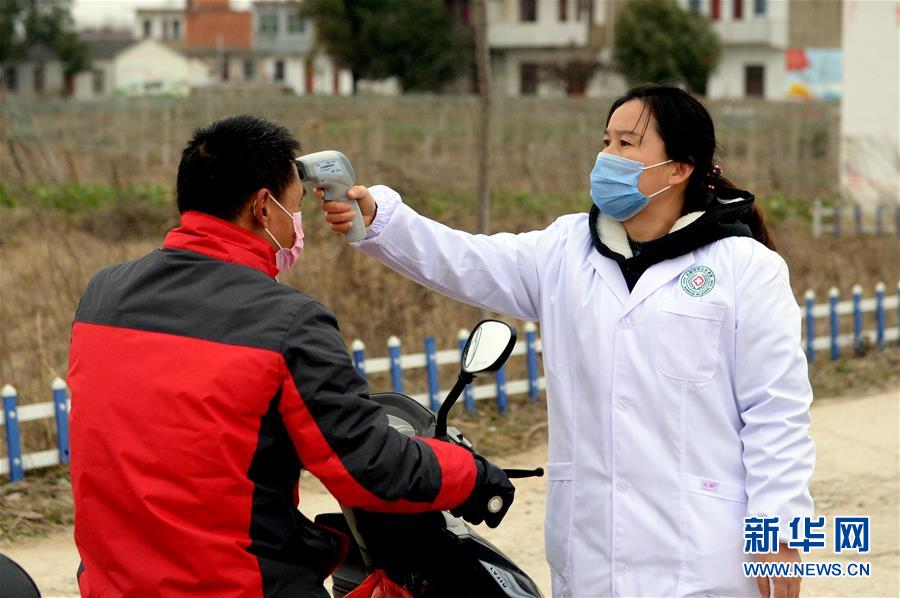 |
| Zhou Chaoqun (R), a medical worker with a rural community clinic in Feidong, a county in East China's Anhui Province, tests the temperature of a man at the entrance of a village on February 6. Zhou and her husband Cui Aiguo, who is also a doctor in the community clinic, have stayed at their posts amid the novel coronavirus epidemic. They are preoccupied with publicizing virus-related prevention and control information, monitoring the temperature of those being quarantined at home, and conducting inspections of returnees from other places. [Xinhua] |
BEIJING, February 11 (Xinhua) — A total of 560,000 health workers in China's vast rural areas have taken online courses on the novel coronavirus epidemic to enhance their skills in epidemic control as of Monday, an official with the National Health Commission (NHC) said Tuesday.
The latest findings about the virus and new knowledge of prevention and control have been added into the online learning materials to keep the health workers updated, Nie Chunlei, head of the department of primary health of the NHC, told a press conference in Beijing.
Rural health workers have made great contributions to virus screening and epidemic prevention and control by checking on returning and non-native individuals and people with fever, Nie said.
He noted that such work in remote areas is particularly painstaking as rural doctors have to travel long distances to accomplish the tasks.
China now has 1.44 million rural medical workers and has health services delivered to all rural areas, Nie said.
Stressing that medical workers should report necessary information on infectious diseases in a timely manner in accordance with the law, Nie urged authorities to reduce repetitive data reporting and form filling for primary-level officials and health workers so that they can devote more time and energy to epidemic prevention and control.
"Medical facilities in rural areas should focus on virus screening," Nie said, adding that upon detection, they should transfer suspected patients to designated hospitals.
He also highlighted that the safety of medical workers dedicated to virus screening at the primary level is an important concern of the government.
"We will maintain coordination with competent departments to solve the shortage of protective supplies for rural health workers and make sure local authorities take medical personnel at the primary level into consideration when allocating supplies," Nie said.
(Source: Xinhua)

